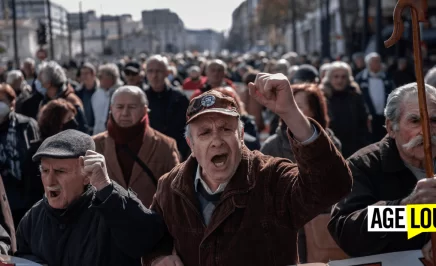Amnesty International Australia welcomes the Australian Government’s announcement today that it will fulfil its election promise to end the cruel and unnecessary system of temporary protection visas that has forced thousands of people and their families to live in limbo, unable to move on with their lives.
The announcement will end Temporary Protection Visas (TPVs) and Safe Haven Enterprise Visas (SHEVs) that, in contravention of Australia’s obligations under the Refugee Convention, have denied permanent settlement to refugees who sought asylum in Australia by sea.
“This reform is long overdue and will change the lives of people who have been living for years on temporary protection visas that have restricted their ability to reunite with their families, study, travel and participate fully in Australian life,” said Zaki Haidari, Amnesty International Australia’s Refugee Rights Campaigner.
“Many people like myself who sought refuge in Australia have been living here for as many as 10 years and have suffered unnecessarily from successive Australian governments’ cruel temporary protection policies.
“As a human rights organisation, Amnesty is relieved to see the happiness this brings after so many years for the more than 19,000 refugees for whom this announcement applies. At the same time, it pains us to see other refugees, in the so-called transitory caseload, left out of this decision and denied permanent visas,” said Haidari.
Amnesty’s Refugee Advisor Graham Thom added: “For the refugees medically brought back to Australia from Nauru and PNG it is a traumatising system that unnecessarily requires them to reapply for the right to stay every six months and, for many, depending on the conditions of their bridging visa, denies them their basic human rights, including the right to study.
“We also remain concerned for those asylum seekers who were rejected under the flawed fast-track process. Thousands of asylum seekers rejected under this process, who have been living and working in Australia for more than a decade, now face further limbo and uncertainty, with many facing the very real prospect that they will be forcibly returned to the country from which they fled,” said Thom.
Background
Temporary protection visas have been a longstanding part of the previous Australian government’s policy that people who come by sea and claim asylum should not be given permanent protection. TPVs and SHEVs were reintroduced in 2014, when the Abbott Government’s then Minister of Immigration, Scott Morrison, struck a deal with the Palmer United Party and others on the Senate crossbench to force the passage of legislation that paved the way for more than 31,000 refugees and asylum seekers to be denied permanent settlement, reunification with their families, travel to visit family, the ability to find stable work and to rebuild their lives.
Amnesty International Australia is among many human rights and civil society organisations who have campaigned for the removal of temporary protection visas since their inception, and called for the end of an unnecessary, cruel, harmful policy which undermines a cohesive Australian society.
According to the UNSW Kaldor Centre for International Refugee Law, the Australian Government’s temporary protection policy has been “an inhumane, unsustainable, and inefficient system that inflicts mental harm and creates costly, bureaucratic burdens. Providing permanent protection to the 31,000 men, women, and children in this group [who arrived by sea] – many of whom have been recognised by Australia as refugees in need of protection – would provide them with a resolution of their legal status and enable them to move forward with their lives, while also acknowledging the significant contribution this group has already made to the community through work and social engagement.” 1
“The use of temporary protection is inconsistent with Australia’s obligations under international refugee and human rights law. Intended to deter people from entering Australia in irregular or unauthorised ways, it discriminates against people on the mode of their arrival and denies access to family reunion. Australia’s approach to temporary protection is also an aberration from international practice. In other countries, temporary protection has generally been conceived as an exceptional, emergency, and time-bound measure.” 2
- “Policy Brief 13 Temporary Protection Visas in Australia: A Reform Proposal”, UNSW Kaldor Centre for International Refugee Law, June 2022
- Ibid.





